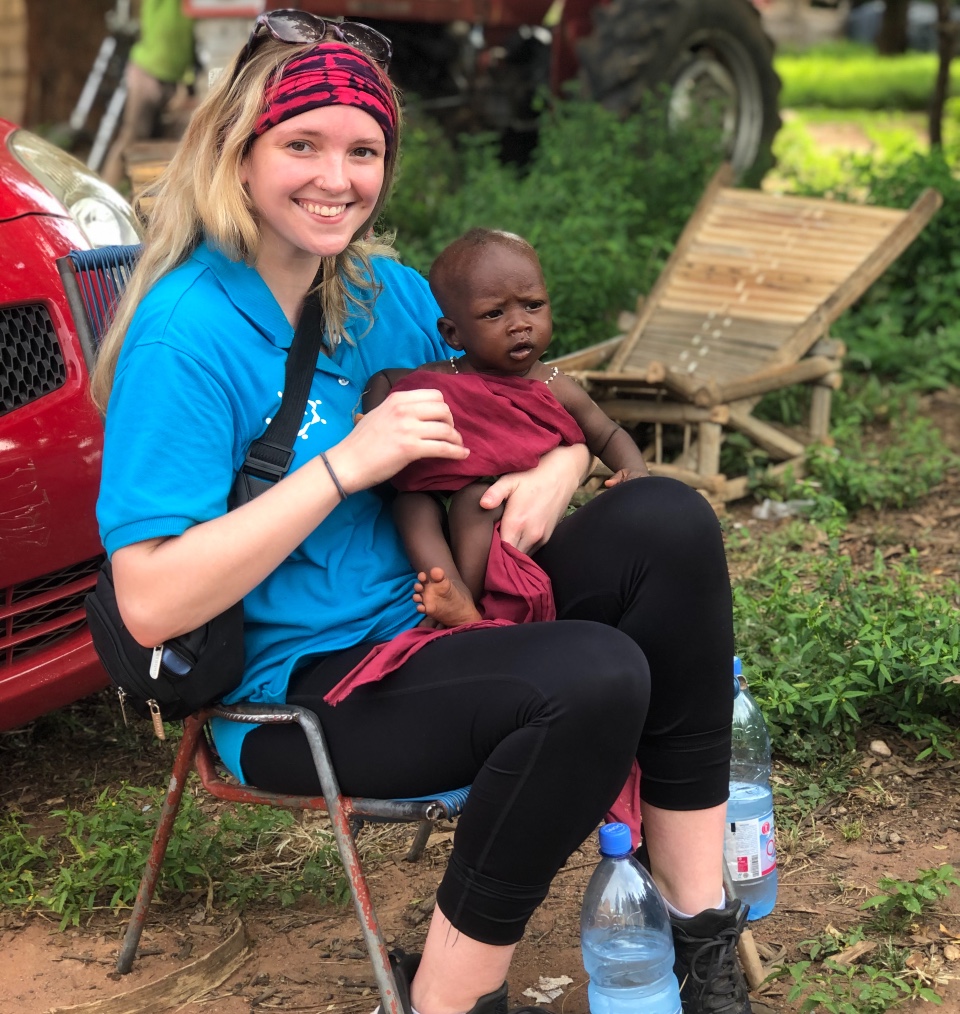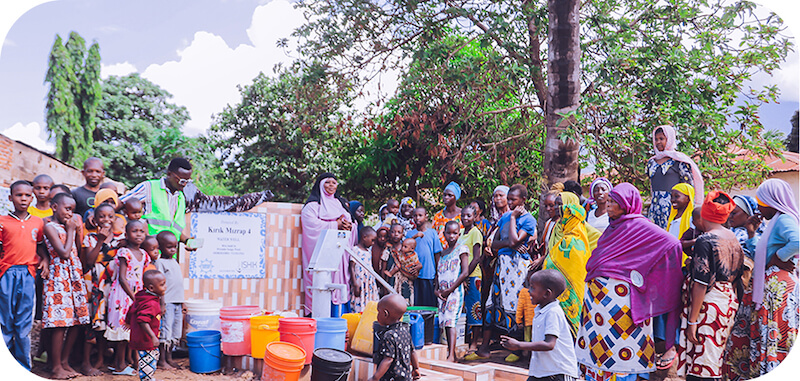
A Trip to Mali and the Importance of Clean Water
One of our very own, Dana Coppola, visited Mali, Africa, earlier this month for 10 days, a trip she has called “life-altering.” Below is her personal account of the trip, in her own words.
Dana’s Trip
I had to mentally and physically prepare myself for the trip we took to Bamako, Mali, located in West Africa where there are limited sources of readily available water and the weather is 100 degrees Fahrenheit. The thought of this made me extremely anxious, but I was also so excited and grateful I was going to have this experience.
We left with 50-degree weather from JFK Airport and arrived in Bamako, Mali one layover and 14 hours later in 98-degree weather. My body immediately began to sweat, and I knew it was going to be 10 days of trying my best to stay hydrated. Hydrate, perspirate, repeat.
I have worked at Embrace Relief for over two years, and during my time here I have done a lot of research and have learned a lot about the water crisis and clean water scarcity that affects the region. I had never been to Africa or gone on a humanitarian mission trip before, so I really didn’t know what to expect. I took all of the suggested travel precautions, which included the vaccination for typhoid, which is a bacterial infection contracted from food or water. Thankfully, no one on our team got sick.
Luckily, our team stayed in the Doctor’s Quarters in one of our clinics, which had a shop next door that had water bottles with filtered, safe water we could get. Every day, we made sure to bring extra water with us in case someone got lightheaded or passed out since none of us have been exposed to a climate like Mali’s before.
Children who lived near the clinic would come to say “Hello” to us and we always tried to give them some candies we brought there from the U.S. If we didn’t have anything, we would give them water, which they happily accepted. I had never seen children so excited to get a bottle of water before. Things really started to be put into perspective for me.
The villages we visited were Djissoumabougou, which is 45 minutes outside of the capital city, and Sirakorola which is two and a half hours away. Djissoumabougou has one water well that serves all 40 families who live in the village, and some people must walk up to 30 minutes to reach the well. This well, in particular, was dug 45 meters underground, so we knew it was safe to drink – the water was even chilled! Sirakorola is a network of 55 villages. The section we visited had a water pump and although we were unable to ask how deep it was, it was chilled and felt refreshing to put on my neck and arms.
During our time in Mali, I saw poverty for the first time up close, and the way I view the world has been changed forever. I returned from Mali filled with gratitude, knowledge, and drive to work harder than ever in the U.S. to continue to help my friends in Mali.
The Importance of Clean Water
Mali isn’t the only country struggling from clean water scarcity and its ill effects. Millions of people in sub-Saharan Africa collect unsafe water from lakes, rivers, and ponds on a daily basis, infecting themselves with waterborne illnesses that either result in death or make them too sick to work or pursue an education. Many of them also spend up to six hours a day obtaining this water, especially women and young girls, forcing them to face danger and extreme weather conditions. This daily practice also steals valuable time they could be using to work or pursue an education. The fact that this vastly impacts women and young girls is particularly noteworthy because studies show females contributing to the workforce and pursuing education increases gender equality, which in turn leads to economic growth. Therefore, due to Africa’s lack of access to clean water, millions are suffering greatly from poor health and poverty.
How Embrace Relief is Aiding the Situation
Fortunately, Africa houses a substantial amount of clean water underground, possibly 20 times more than the 8,000 miles of visible water in its lakes and ponds. This is why Embrace Relief stepped up to the plate in 2020, building and reconstructing a total of 500 water wells throughout Chad, Cameroon, and Nigeria to date. (Our Fountains of Hope project focuses specifically on reconstructing no-longer-operational wells.) We also plan on building and reconstructing hundreds more throughout the region, as well as in Nigeria. The current wells supply clean water to over 500,000 people on a daily basis, are constantly monitored to ensure peak performance, and are guaranteed to last at least five years. We also educate each community on how to maintain the wells so they can become self-sustainable on into the future.
The Effects of Clean Water
By providing clean, sanitary water, Embrace Relief has and will continue to drastically reduce the multitude of ill effects of unsanitary water in the region, which will lead to the following improvements:
- Vast improvement in overall health due to increased sanitation and hygiene. This includes women being able to better manage menstruation and pregnancy.
- Vast increase in education since children will have more time to pursue it rather than fetching water, allowing them to obtain higher-level, more lucrative jobs
- Vast increase in gender equality, since women and girls will have more time to work and pursue an education as well
- Vast increase in irrigation, leading to improved agriculture and more, better-paying jobs for farmers
- Less conflict between neighboring countries and communities fighting over clean water reserves
- As a result of all these things, the sub-Saharan area—which is currently experiencing extreme poverty—will experience significant economic growth. This in turn will lead to more sustainable communities, which is of particular importance because the people in sub-Saharan Africa are hard-working people who deserve a higher standard of living. And if nothing is done to help them achieve this, forecasts predict that in 2030, 90 percent of the world’s poor will be concentrated in this area of the world.
Please Donate Today
So, make it your Year-End Resolutions this year to donate to our Clean Water campaign to help improve the lives of hundreds of thousands of people forever. You can even fund your own clean water well project, in which you can give your well a name and provide a description of the project to be posted on our site. By doing so, you’re not only providing hundreds of thousands of people with clean water, you’re providing them with life itself.
More About Our Year-End Resolutions
A take on New Year’s Resolutions, our Year-End Resolutions is something you can do—right here, right now—that has an impact before the year is officially over. For example, contributing to one of Embrace Relief’s many humanitarian causes (check them all out here). And the best thing is—by doing so, you’ll officially make 2021 a great year. Not just for yourself, but people who need support but have nowhere and no one to turn to, because we provide them the tools and resources necessary to improve their lives. Happy Year-End!
Donate For Clean Water Ramadan 2025
Embrace Relief's aims to build 15 water wells during the holy month, providing communities with the safe drinking water they need.






















